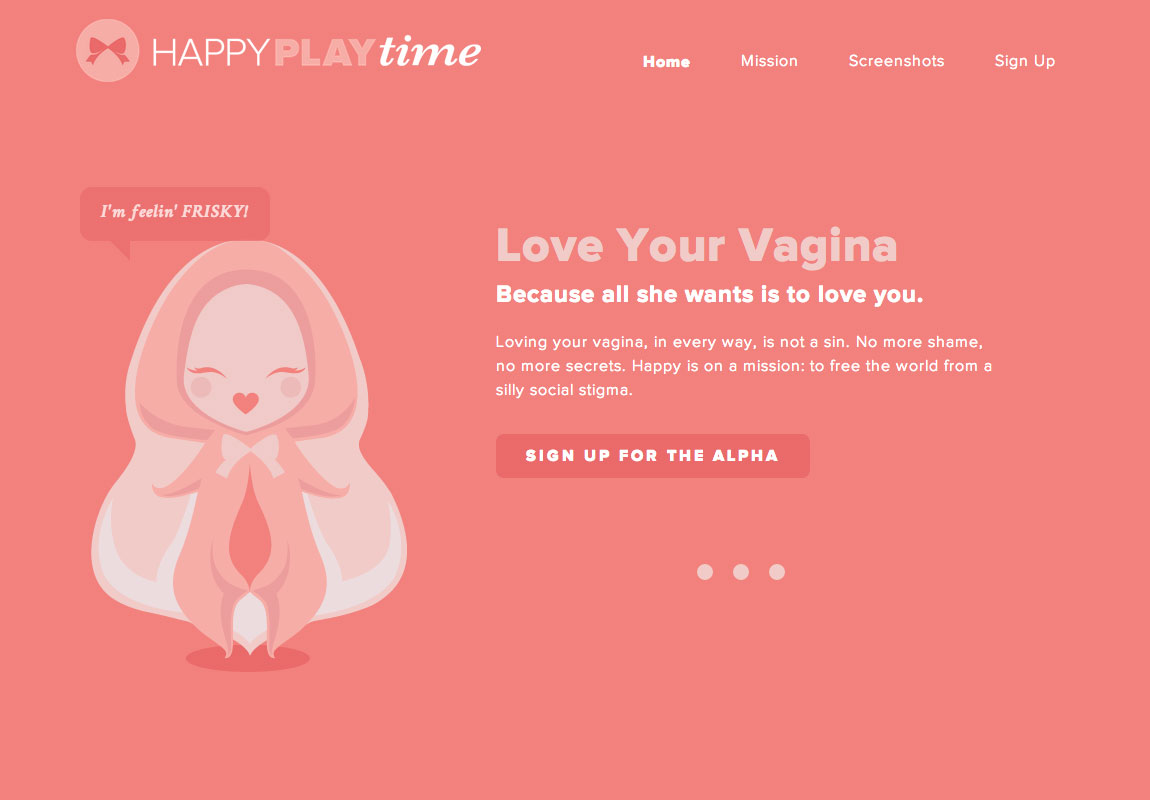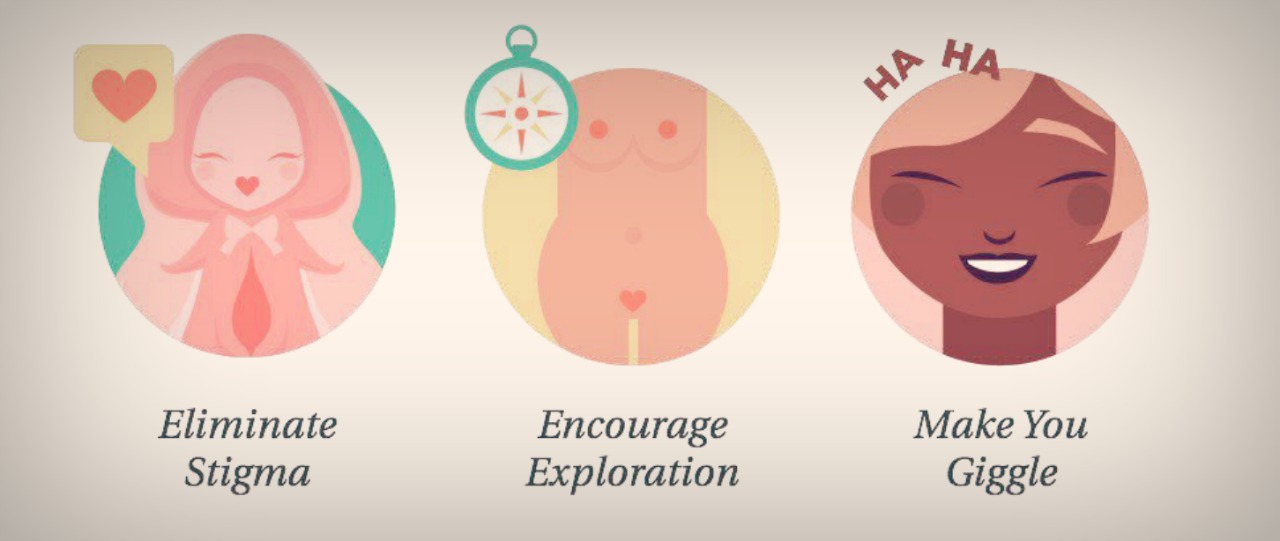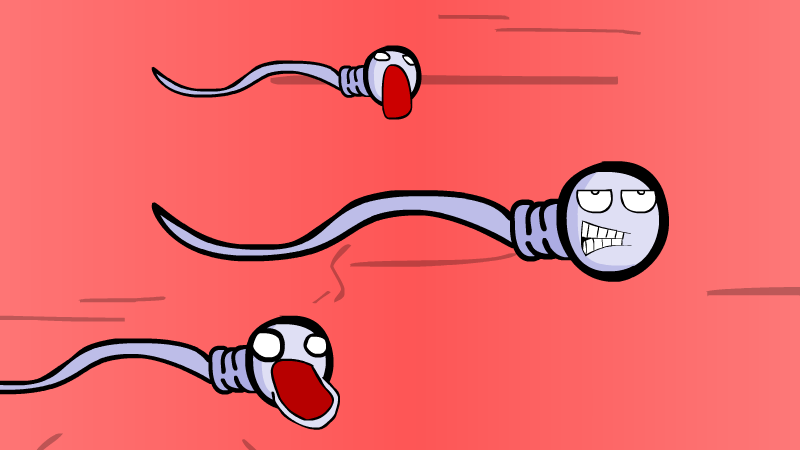Apple Blocking Sex Education App
When 24-year-old designer Tina Gong submitted her self-created iPhone app HappyPlayTime to iTunes in May for Apple’s approval, she knew she might run into red tape. “I know how strict Apple can be in its review process,” she says, “but because HappyPlayTime is a sex education app, I thought I could get in.”

Gong’s app features a grinning, anime-style cartoon vulva that users tap, swipe and glide their fingers across. The goal? Score points by making the vulva “very, very happy.” In other words, simulate masturbatory motions to get the vulva off. The app also includes lessons on female anatomy, and Gong hopes to use the technology to educate women—both young and old—to become more comfortable with their bodies. “Masturbation is just the start of that process,” she says.

Her process turned into a standoff with Apple when its review team rejected HappyPlayTime, calling it inappropriate. Gong kicked up the suggested age rating from 12-plus to 17-plus and appealed the decision, to no avail. “They said it was rejected for pornographic reasons and crude content,” explains Gong, “but nothing graphic happens in the app. There are just cartoons and connotations. It’s meant to be tongue-in-cheek.”
Apple Blocking Sex Education App
Apple’s review process is notoriously fickle, a long-winded odyssey that requires beta testing and design contracts before a reviewer, tasked with auditing scores of new submissions, makes a decision. The content guidelines are frustratingly vague. To hear the company tell it, “We will reject apps for any content or behavior that we believe is over the line. What line, you ask? Well, as a Supreme Court justice once said, ‘I’ll know it when I see it.’ ”
That line is anything but absolute. Consider the sex apps that have been approved: Tinder is for hooking up, Hot Tips offers advice for “kinky fun” and “three in a bed,” and iKamasutra lets you record your progress in Hindu lovemaking. So why is self-pleasure—particularly female pleasure—off-limits?
“Sex activates the moral foundation of sanctity and gets judged as bad, dirty and wrong,” says Emily Nagoski, a sex educator at Smith College and author of The Good in Bed Guide to Female Orgasms. “It seems Apple is conflating something that is sexually relevant with something that is sexually pleasurable or arousing. They are not the same thing.” Nagoski says that Apple’s murky methodology is emblematic of why few social advances have been achieved at the nexus of sex and technology. “Apple is making a moral judgment, not an intellectual one,” she says.
Hence, good intentions—such as Gong’s goal of defusing the stigma of female pleasure—are ignored. “You need to grant people a space to approach sex education,” explains Nagoski. “Could there be any better medium than technology?”
Researchers have long demonstrated that sex education in any form can improve one’s sex life. A study in The Journal of Sexual Medicine found that 90 percent of women who had difficulty reaching orgasm were able to do so more easily after receiving instruction on how to properly masturbate. A study in the Annual Review of Sex Researchconcluded that simply reading a book about orgasms could be more effective than psychotherapy. “Education works,” says Nagoski, “and the platform through which it is delivered doesn’t matter.”
Tom Chen, founder of the China-based sex-toy maker Linkcube, wants to take digital sex education a step further with “smart” toys. Consider Skea, a Kickstarter-funded vaginal device based on Kegel exercises. Skea is designed to strengthen a woman’s pelvic floor by syncing with a smartphone game called Alice in Continent, based on the popular game Temple Run. Women squeeze their pelvic muscles around the Skea to make Alice jump, dodge and run. The idea, says Chen, is to help women achieve a better sex life and improve their well-being.
Chen says the response to the game has been positive and he anticipates huge demand worldwide when it hits the market early next year. He is also confident his game will meet Apple’s guidelines because he plans to market it as a medical tool rather than a recreational device.
Whether he’s right or not, sex-positive developers such as Gong and Chen are challenging Silicon Valley’s corporatists to promote sexual health through technology. “Arbitrary rules make it hard for people to innovate sex education for social good,” says Gong. “We need that to change and shift technology to support a healthier attitude.” Adds Nagoski, “The fact that this conversation is happening shows we’re moving in the right direction. I have a lot of hope.”





